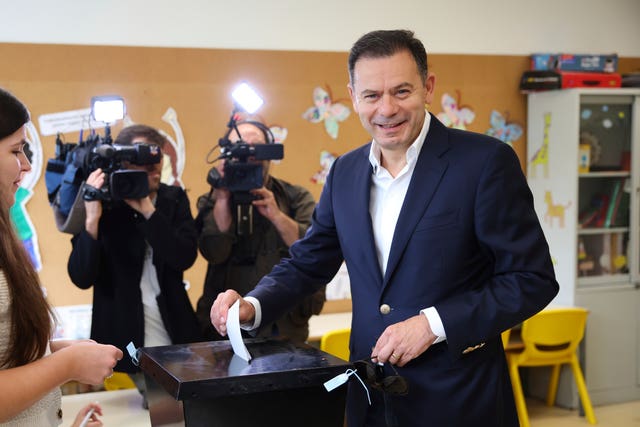Portugal headed for another minority government after general election
The general election is the country’s third in three years.

The incumbent centre-right Democratic Alliance has won the general election in Portugal but failed to secure a majority in parliament and was set to take office as a minority government for the second time in a year.
Portugal’s third general election in three years dashed hopes that the ballot could end the worst spell of political instability for decades in the European Union country of 10.6 million people.
Also, a surge in support for the hard-right populist party Chega (Enough), which may yet claim second place with its focus on curbing immigration and cracking down on corruption, added further uncertainty to Portugal’s political climate.
With 99% of votes counted, the Democratic Alliance captured at least 81 seats in the 230-seat National Assembly, Portugal’s parliament.

It had been in power for less than a year when it was ousted in a confidence vote in March. It collected 80 seats in last year’s election and served as a minority government.
Three smaller parties also got seats. The seat allocation meant that the Democratic Alliance could not be overtaken when the final results are compiled. Official results showed 24 seats remained to be allocated.
Without a majority of seats the Democratic Alliance, led by the Social Democratic Party, can try to recruit support from smaller parties, currently seen as unlikely, or take office as a minority government as it did during its last term.
That leaves it at the mercy of opposition parties combining to bring it down, as happened two months ago.

Public frustration with Portugal’s main parties has brought an increasingly fragmented political landscape and defied efforts to unite behind policies on pressing national issues such as immigration, housing and the cost of living.
In a dramatic demonstration of the changing complexion of Portuguese politics, support for populist party Chega surged once again. It collected at least 54 seats, up from 50 seats last year, and is challenging the centre-left Socialists as Portugal’s second-biggest party.
Chega competed in its first election just six years ago, when it won one seat, and has fed off disaffection with the more moderate traditional parties. Campaigning under the slogan “Save Portugal”, it describes itself as a nationalist party and has drawn on the popularity of its leader, lawyer and former football pundit Andre Ventura.
For the past 50 years, the Social Democrats and the Socialist Party have alternated in power.
The Socialists were contemplating possibly their worst result since 1987, gaining 55 seats.





